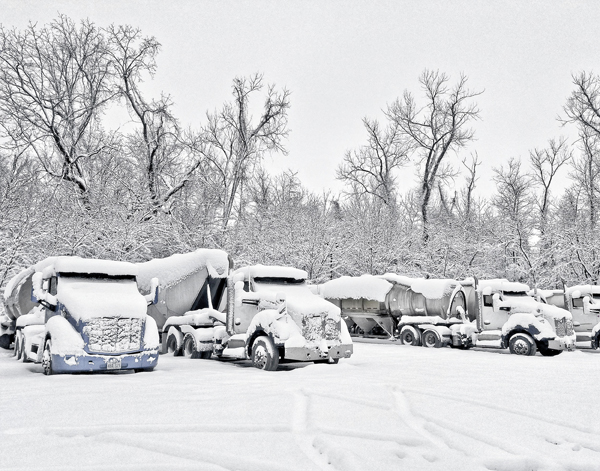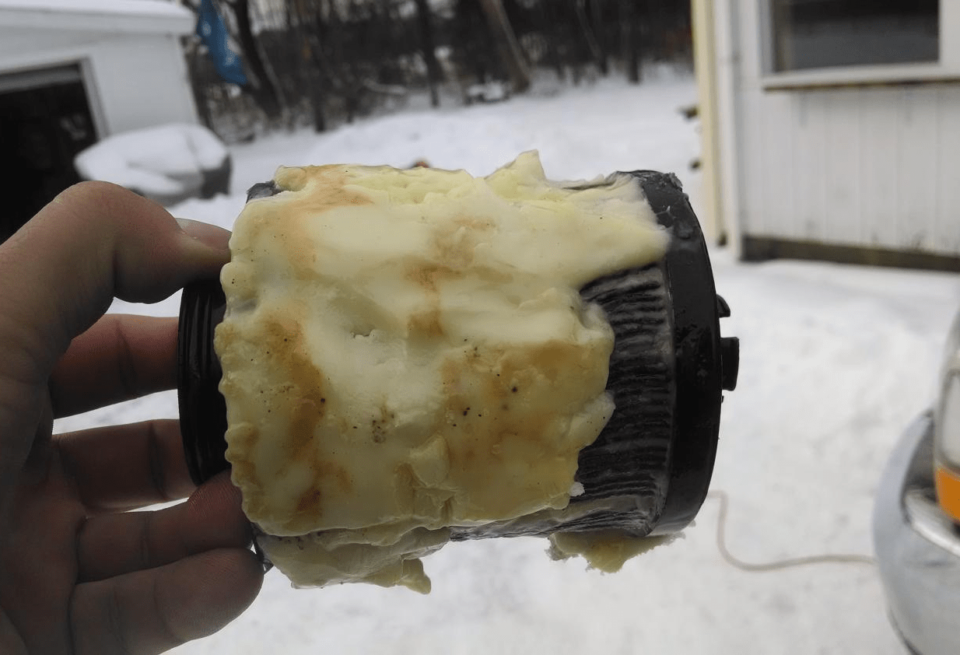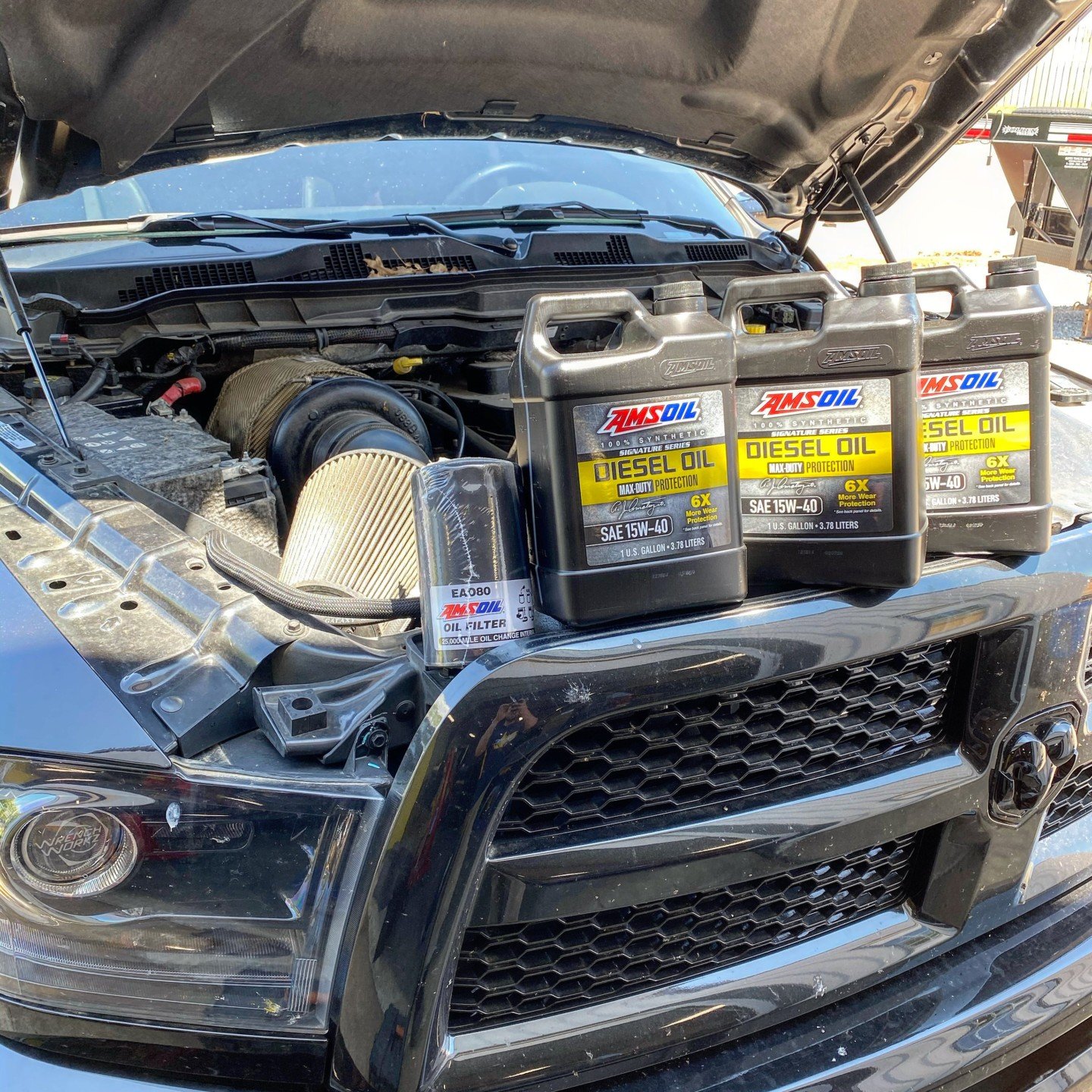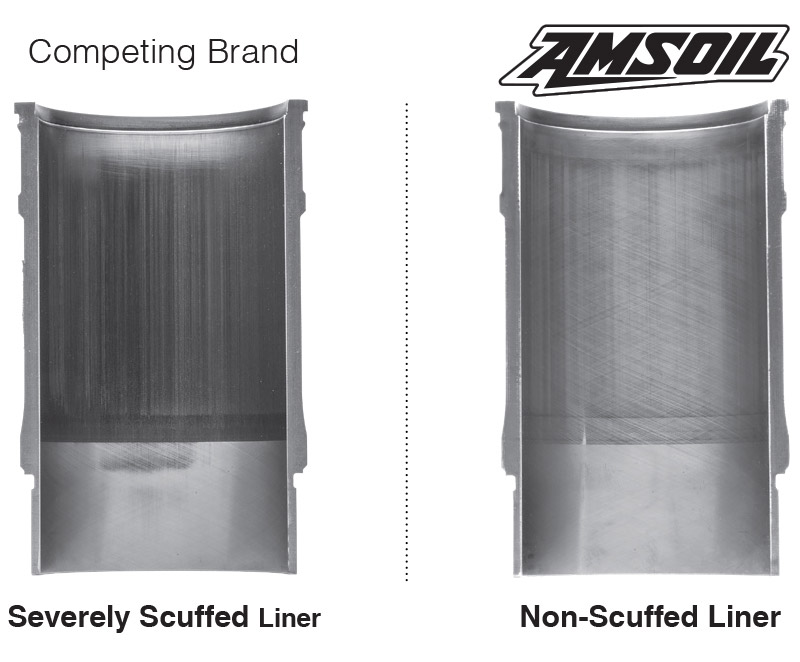For many of you, winter is here and you may be seeing below freezing temperatures at night. For myself, it means I may have to dust off my favorite hoodie, get a fresh set of flip flops and wonder why my neighbor’s winter grass is always better than mine. You see, I was born and raised in Phoenix which means my definition of winter is different than most.
This means I’ve never considered changing how I maintain my vehicles during this time, until now. But for those of you that consistently see temperatures at or below 40-degrees, pay attention as this one’s for you.
If you’re like me, your diesel truck is likely your second biggest investment next to your house. It’s also likely that this investment gets you to and from work to afford your home, so maintaining it should be a priority. If you live under a rock, then you may be surprised to know the engine and fuel system can be the two most costly things to repair when catastrophic failure occurs.
Frigid winter temperatures bring on new challenges when it comes to protecting these systems. Fortunately, Amsoil has the technology to deliver winter protection to keep your truck on the road, not the side of it. Since I have rarely changed how I maintain my Duramax in the winter, I spoke with Brett Granmo, Sr. Market Coordinator at AMSOIL. I wanted to get more specifics on when a diesel owner should consider winter-specific fuel additives or oils.
“15W-40 is the most widely used viscosity and can be used year round. There are cold-weather benefits to using a 5W-40 or 0W-40 on equipment that operates in extremely cold temperatures,” Brett stated. “In regards to fuel, low-quality fuels may form wax crystals in temperatures as warm as 40°F (4°C) and most fuels have a cloud point near 32°F (0°C).” Even here in Phoenix, we see nighttime temperatures lower than listed above, which now has me considering a winter regimen for my diesel.
An Ounce Of Prevention For The Fuel System
First, let’s talk about the fuel injection system. Diesel fuel is the lubricant for components like the injectors, high-pressure pump, and fuel pressure regulator. AMSOIL has created a wide range of fuel additives for every occasion, but let’s focus on cold weather care. Even though your truck may be equipped with a fuel heater, it only heats a centralized area of fuel when the ignition is on. This is why it is important to keep diesel in a fluid state to prevent clogging of the fuel filters.
This is “CFPP”, or cold filter-plugging point. as Brett explained to me. This is the state in which crystals clog the fuel filters. AMSOIL has three winter formulas to handle all instances.
The first product is Diesel All-In-One. This provides “all-season protection and performance by offering increased lubricity, cleaning agents, improved cold flow, and an increase in the fuel’s cetane rating. What does that mean for you? It will lubricate all moving parts and reduce metal-on-metal wear. It also cleans deposits from key areas like the regulator orifice and injector nozzles, keeps fuel flowing rather than slowing as well as improve how easily it ignites. One ounce will treat up to 2.5 gallons and is offered in several sizes.
Next in the company’s lineup is Diesel Cold Flow. Unlike a lot of other additives on the market, it does not contain alcohol to be effective. Alcohol is a drying agent, which is not ideal for metal parts that need lubrication. Diesel Cold Flow should be added to the tank above the temperature at which crystallization occurs. When used properly, it will prevent gelling and freezing. Unfortunately, it will not reverse these effects.
According to Brett, “Diesel Cold Flow and Diesel All-In-One will lower the CFPP by up to 40-degrees (22°C) in ULSD”. In other words, if your daily commute looks like an episode of Ice Road Truckers, then these two additives will keep your fuel system from getting frostbite.
The final winter product offered by AMSOIL is Diesel Recovery. Diesel Recovery will dissolve gelled fuel and thaw frozen fuel filters. I asked Brett how long it can take until a consumer can expect Diesel Recovery to work and allow fuel to flow again? I also wondered if it can be added to the tank only or does it have to be added to a filter or filter housing?
“Due to varying fuel quality found across the U.S., we recommend pretreating with our Diesel Cold Flow and Diesel All-In-One but also keeping Diesel Recovery on hand for emergencies. Diesel Recovery goes to work right away dissolving gelled fuel,” Brett explained. “The fuel filter is the problem area and in order to get the best performance, we recommend adding to both the fuel filter and the tank.”
Reducing Engine Wear On Startup
Now that you know how to protect your fuel system in cold weather, let’s school you on engine protection. Similar to fuel, the colder an oil gets the slower it moves or stays in liquid form. When you start your diesel engine, the crankshaft has to turn through oil and the oil pump has to move oil throughout the engine. Cranking speed is extremely important to ignite diesel fuel.
If the crankshaft can’t move freely, this can prevent the engine from starting. All other internals that rely on oil for lubrication have a higher chance of metal-on-metal contact which speeds up engine wear. This is a big reason why using a synthetic oil is crucial during the winter.
Conventional oil goes through a different manufacturing process and contains wax, giving it a higher pour point. Since Amsoil full-synthetic oil does not contain wax, it gives the company’s Signature Series Oil a pour point as low as -58 degrees. No matter where you drive your truck, AMSOIL has your engine protected during severe cold weather starts.
I asked Brett at what temperature should a diesel owner start planning to switch to a different oil, whether it be a different weight or from a conventional/blend to a synthetic? He replied, “at any time, you can make the switch from conventional to synthetic blend or to synthetic. Some applications do require a break-in recommendation using a certain oil but that should be noted in the owner’s manual. I personally use our 5W-40 year round and I know many customers and fleets that use a 5W-40 or 0W-40 year round in both hot and cold climates. Our 0W-40 actually has 4X better cold-temperature performance when compared to SAE 15W-40 in ASTM D5293 Cold-Cranking Viscosity test.”
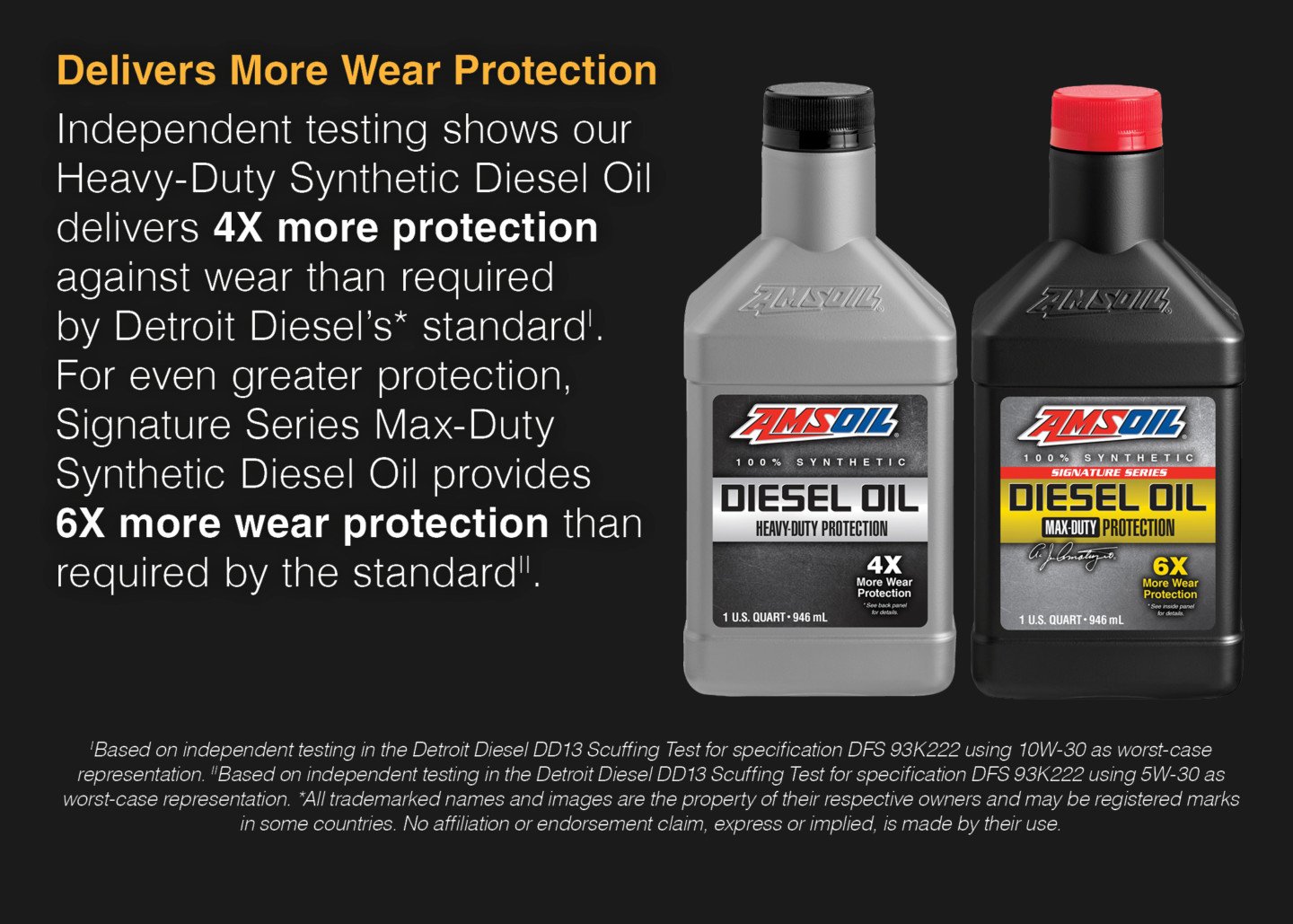
Now that you’re armed with that information, you can see the importance of using synthetic oil or a lower weight oil in cold climates, no matter how often you service the oil and filter.
AMSOIL offers two types of oil, including Heavy Duty and Signature Series. Continuing my chat with Brett, I wanted to know how he would help a diesel owner choose between the Heavy Duty or Signature Series oil?
“We have two tiers of protection. Our Heavy Duty is our price-competitive line that is still 100-percent synthetic and provides more wear protection. This is a great product line and has seen really great performance since its introduction. Our Signature Series is the best diesel oil that we can make using 100-percent synthetic base oil and boosted additives to provide more wear protection.”
Having the ultimate protection during winter is great, but these oils also offer many other benefits. These include outstanding protection against rust and resisting oxidation. Both also hold up well against soot contamination and work extremely well in high temperatures. So whether your truck is a basic daily driver, sees competition use, or tows too heavy up that grade in the middle of summer, you can rely on their engine oils to keep your engine alive and not looking like the “Competing Brand” below.
We’ve only scratched the surface of AMSOIL’s offerings and they have so much more than diesel oils and fuel additives. If you would like to know more about what they have to offer for your diesel, try using their Vehicle Look Up. No matter what you own, they have synthetic products to keep it running.

